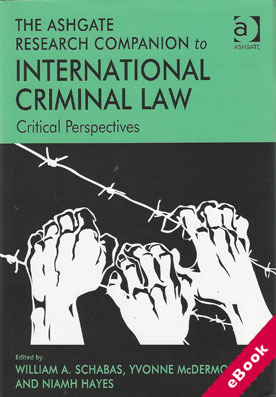We are now closed for the Christmas and New Year period, returning on Monday 5th January 2026. Orders placed during this time will be processed upon our return on 5th January.

The device(s) you use to access the eBook content must be authorized with an Adobe ID before you download the product otherwise it will fail to register correctly.
For further information see https://www.wildy.com/ebook-formats
Once the order is confirmed an automated e-mail will be sent to you to allow you to download the eBook.
All eBooks are supplied firm sale and cannot be returned. If you believe there is a fault with your eBook then contact us on ebooks@wildy.com and we will help in resolving the issue. This does not affect your statutory rights.
International criminal law is at a crucial point in its history and development, and the time is right for practitioners, academics and students to take stock of the lessons learnt from the past fifteen years, as the international community moves towards an increasingly uni-polar international criminal legal order, with the International Criminal Court (ICC) at the helm.
This unique research companion takes a critical approach to a wide variety of theoretical, practical, legal and policy issues surrounding and underpinning the operation of international criminal law as applied by international criminal tribunals. The book is divided into four main parts.
The first part analyses international crimes and modes of liability, with a view to identifying areas which have been inconsistently or misguidedly interpreted, overlooked to date or are likely to be increasingly significant in future. The second part examines international criminal processes and procedures, and here the authors discuss issues such as victim participation and the rights of the accused.
The third part is a discussion of complementarity and sentencing, while the final part of the book looks at international criminal justice in context. The authors raise issues which are likely to provide the most significant challenges and most promising opportunities for the continuing development of this body of law. As international criminal law becomes more established as a distinct discipline, it becomes imperative for international criminal scholarship to provide a degree of critical analysis, both of individual legal issues and of the international criminal project as a whole.
This book represents an important collective effort to introduce an element of legal realism or critical legal studies into the academic discourse.